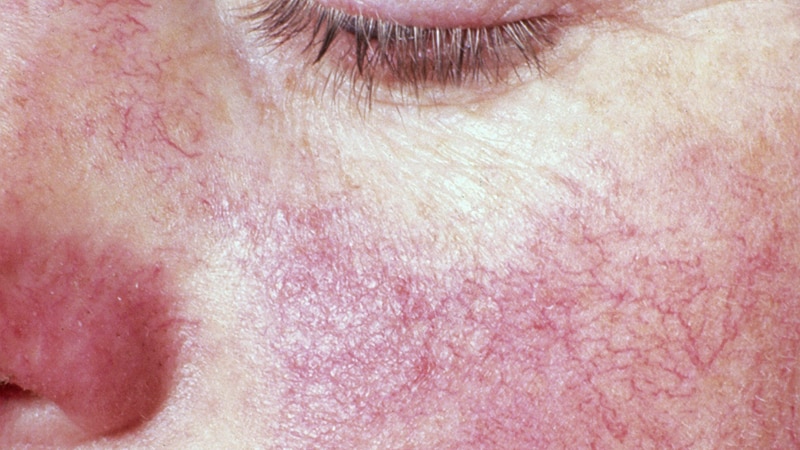[ad_1]
TOPLINE:
Nearly half of the patients with systemic lupus erythematosus (SLE) received oral glucocorticoids, and the use of increased doses was associated with an elevated risk for complications and healthcare costs. Other SLE-related treatments were underused in a proportion of patients on increased doses of oral glucocorticoids.
METHODOLOGY:
- Researchers conducted a cross-sectional, retrospective study using the nationwide French health insurance claims database to examine the use of oral glucocorticoids and other SLE treatments in patients with SLE over the calendar year 2019.
- Patients with SLE were identified on the basis of either a long-term disease status using International Classification of Diseases diagnostic codes or at least one hospitalisation between 2008 and 2019 for SLE with organ or system involvement, other forms of SLE, or unspecified SLE.
- Overall, 31,852 patients with SLE (mean age, 49.7 years; 86.3% women; mean disease duration, 7.1 years) were identified.
- The mean daily dose of oral glucocorticoids was calculated by summing all doses delivered during 2019 and dividing by 365.25 days.
- Oral glucocorticoid–related adverse events, including infections requiring hospitalisation, osteoporosis with or without fracture, type 2 diabetes, and cardiovascular diseases, were identified along with an assessment of annual health expenditures.
TAKEAWAY:
- Among the 48.2% of patients with SLE who received oral glucocorticoids, the mean daily doses were ≤ 5 mg/d in 35.9%, > 5 and
- The use of SLE-related treatments such as antimalarials, conventional immunosuppressants, and biologics increased in patients who received increased doses of oral glucocorticoids (P
- Increased mean daily doses of oral glucocorticoids were associated with an elevated risk for related complications, particularly osteoporosis, heart failure, and infections requiring hospitalisation, in an age-adjusted analysis.
- The disease cost was higher in patients who were treated with oral glucocorticoids than in those who were not (P
IN PRACTICE:
“These results highlight the need for tight disease control and better implementation of robust OCS [oral glucocorticoid]-sparing strategies in SLE that are in line with the latest 2023 EULAR [European Alliance of Associations for Rheumatology] recommendations for SLE,” the authors wrote.
SOURCE:
This study was led by Laurent Arnaud, Service de Rhumatologie, Hôpitaux Universitaires de Strasbourg, Strasbourg, France. It was published online on February 18, 2025, in Lupus Science & Medicine.
LIMITATIONS:
The use of medico-administrative databases inherently limited the ascertainment of patients with SLE. The accuracy of the codes for disease identification was dependent on clinical documentation and coding methods employed by healthcare providers. The study design could not account for the effects of high-dose corticosteroid therapy administered before 2019. The inclusion of oral glucocorticoids was limited to those dispensed in outpatient pharmacies.
DISCLOSURES:
The authors declared that this research received no specific grant funding. One author reported serving as a consultant for various pharmaceutical and biotechnology companies. Four authors reported employment with AstraZeneca, while three others were employed by CEMKA.
This article was created using several editorial tools, including AI, as part of the process. Human editors reviewed this content before publication.
[ad_2]
Source link : https://www.medscape.com/viewarticle/high-dose-steroids-lupus-linked-health-complications-2025a10004fi?src=rss
Author :
Publish date : 2025-02-24 12:00:00
Copyright for syndicated content belongs to the linked Source.
